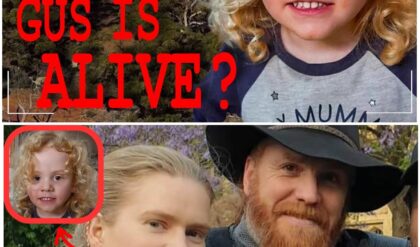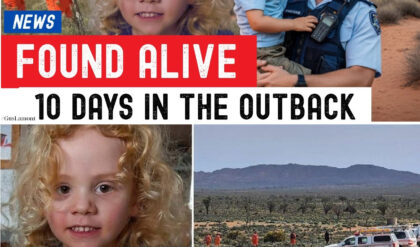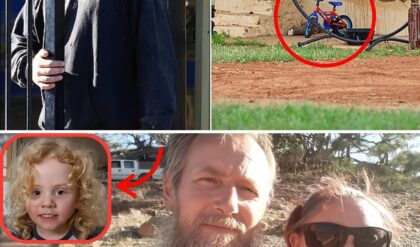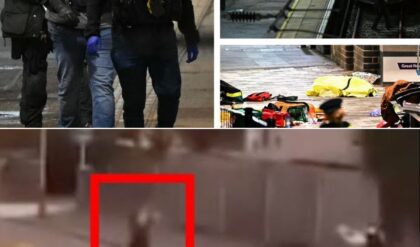Madeleine McCann’s Enduring Enigma: 18 Years of Unanswered Questions
Eighteen years have passed since Madeleine McCann, a three-year-old British girl, vanished from her family’s holiday apartment in Praia da Luz, Portugal, on May 3, 2007, yet the sentiment that “something doesn’t add up” continues to echo through the case. Described as the most heavily reported missing-person case in modern history, Madeleine’s disappearance has spawned countless theories, investigations, and media frenzies, yet the biggest question remains unanswered: What truly happened to Madeleine that night? Was she abducted by a stranger, as German authorities assert in their focus on prime suspect Christian Brückner? Did an accident occur, concealed by those closest to her? Or does the truth lie in a realm no one has yet uncovered? This article delves into the heart of the mystery, exploring the case’s twists, the persistent doubts, and the elusive answer that keeps the world captivated.
The Night That Shattered a Family
The facts of May 3, 2007, are both simple and perplexing. Kate and Gerry McCann, doctors from Rothley, Leicestershire, were vacationing at the Ocean Club resort in Praia da Luz with their three children—Madeleine, nearly four, and her two-year-old twins, Sean and Amelie—and a group of friends known as the “Tapas 7.” That evening, the adults dined at a tapas restaurant 55 meters from their ground-floor apartment, leaving the children asleep and checking on them periodically. At around 8:30 p.m., the group began their meal, with members taking turns to check the children. Gerry checked at 9:05 p.m., reporting all was well. At 10:00 p.m., Kate returned to find Madeleine’s bed empty, the window open, and the shutter raised. Her immediate cry—“They’ve taken her!”—set off a chain of events that would dominate global headlines for decades.
The initial response was chaotic. Portuguese police, the Polícia Judiciária (PJ), launched a search but failed to secure the crime scene, compromising potential forensic evidence. Locals and tourists joined ad-hoc searches, while the McCanns, supported by high-profile figures like David Beckham, issued desperate appeals. The case’s intensity, likened to the media storm following Princess Diana’s death, thrust Kate and Gerry into a relentless spotlight, where they faced both sympathy and suspicion.
The Investigation’s Rocky Path
The Portuguese investigation quickly stumbled. Early suspects, like local resident Robert Murat, were cleared, and the focus shifted to the McCanns themselves. In September 2007, Kate and Gerry were named “arguidos” (suspects) after British sniffer dogs detected traces of blood and cadaver scent in their apartment and a rental car hired 25 days after Madeleine’s disappearance. Kate’s refusal to answer 48 police questions during an 11-hour interrogation fueled speculation, though she later explained she was advised to remain silent as a suspect. By July 2008, the PJ archived the case for lack of evidence, lifting the McCanns’ arguido status.
The UK’s Metropolitan Police launched Operation Grange in 2011, treating the case as a stranger abduction or burglary gone wrong. Funded by over £13.2 million, the inquiry released e-fit images in 2013 of a man seen carrying a child toward the beach, but leads dwindled. Portuguese police reopened their case in 2013, and searches near Praia da Luz in 2014 yielded no breakthroughs. The absence of concrete evidence—DNA, witnesses, or a body—left the case in limbo, with public discourse split between those who believed the McCanns were negligent but innocent and others who suspected a cover-up.
Christian Brückner: The Prime Suspect
A significant shift occurred in June 2020, when German prosecutor Hans Christian Wolters named Christian Brückner, a 48-year-old drifter, as the prime suspect. Brückner, who lived in the Algarve from 2000 to 2017, was in Praia da Luz at the time of Madeleine’s disappearance, with cell phone data placing him near the Ocean Club within five minutes of her vanishing. His criminal history is chilling: convictions for child sexual abuse in 1994 and 2016, drug trafficking, and the 2005 rape of a 72-year-old American woman in Praia da Luz. Since 2019, he has been serving a seven-year sentence for the rape, with a release scheduled for September 2025 or January 2026 if an outstanding fine remains unpaid.
German authorities assert they have “concrete evidence” that Brückner killed Madeleine, possibly disposing of her body near the Arade Dam or in Atalaia, near his former cottage. A 2016 search of his property uncovered a hard drive with disturbing content, including writings about drugging and abusing a young girl and images suggesting Madeleine’s death. A 2008 conversation with acquaintance Helge Busching, where Brückner allegedly said Madeleine “didn’t scream,” further implicated him. Searches in May 2023 at the Arade Dam and June 2025 in Atalaia, using ground-penetrating radar and excavators, found items like clothing, animal bones, and a 6.35 calibre gun, but nothing conclusively tied to Madeleine.
Despite this, no charges have been filed. Jurisdictional disputes in Germany and insufficient evidence have delayed prosecution, with Wolters stating in January 2025 that an indictment is unlikely soon. Brückner’s acquittal in 2024 on unrelated sexual offense charges has weakened the case, raising fears he could flee upon release. The lack of transparency about the “concrete evidence” fuels skepticism, with some on X questioning whether Brückner is a convenient scapegoat to deflect from earlier investigative failures.
The Sentiment: “Something Doesn’t Add Up”
The phrase “something doesn’t add up” captures the public’s unease, rooted in inconsistencies and unanswered questions. Why did Kate immediately assume abduction, saying “They’ve taken her,” rather than searching for a wandering child? Why did the McCanns leave the twins alone after discovering Madeleine’s absence, running to the tapas restaurant to raise the alarm? The sniffer dogs’ alerts in the apartment and rental car, coupled with Kate’s washing of Madeleine’s cuddle cat toy two months later, have sparked theories of a cover-up, though no forensic evidence definitively links the McCanns to a crime. The Tapas 7’s inconsistent timelines and the group’s decision to leave children unattended night after night also raise eyebrows.
Forensic scientist Professor David Barclay, who reviewed the case in 2007, noted potential “staging” in Kate’s reaction, suggesting her choice of words was unusual for a parent whose child had just vanished. Online communities, like those on Reddit, debate why the McCanns weren’t more thoroughly investigated, pointing to the rapid dismissal of DNA evidence and the lack of phone record clarity from the group. Posts on X amplify this, with users like @craig_c83 alleging that DNA markers in the rental car and the dogs’ alerts were ignored, suggesting a focus on Brückner distracts from earlier leads.
Yet, the McCanns have consistently denied involvement, enduring intense scrutiny and libelous accusations. Their 2008 settlement with Express Newspapers and their testimony at the 2011 Leveson Inquiry highlight the media’s role in vilifying them. Their lawyer, Carlos Pinto de Abreu, called suspicions against them “unfounded and absurd,” emphasizing their “deep suffering” as parents. The couple’s ongoing Find Madeleine campaign, supported by Missing People and fueled by their hope that Madeleine, now 22, could be alive, contrasts with German authorities’ belief in her death.
The Biggest Unanswered Question
The central mystery remains: What happened to Madeleine McCann between 9:05 p.m., when Gerry saw her sleeping, and 10:00 p.m., when Kate found her gone? If Brückner abducted her, how did he enter and exit the apartment undetected in such a tight window, with no forensic trace? His history and proximity make him a compelling suspect, but the lack of a body or direct evidence leaves room for doubt. If not Brückner, could an accident have occurred, as some Portuguese investigators initially theorized, with the McCanns concealing it to avoid ruin? The dogs’ alerts and DNA traces in the rental car fuel this theory, yet no conclusive proof exists. Or did another stranger, perhaps one of the men in the 2013 e-fits, seize an opportunity during a botched burglary?
Each theory has holes. Brückner’s guilt hinges on circumstantial evidence, and his release looms without charges. The accident theory struggles against the McCanns’ cleared status and the absence of a body. A random abduction aligns with Operation Grange’s focus but lacks witnesses or CCTV. The sentiment that “something doesn’t add up” persists because no narrative fully explains the physical evidence, the group’s behavior, or the case’s stagnation despite £13.2 million in funding.
The Human Cost and Cultural Legacy
For Kate and Gerry, the pain is unrelenting. Their 2025 statement, marking Madeleine’s 22nd birthday, spoke of celebrating her “unique” presence while living in “limbo.” The twins, now adults, navigate a life shaped by their sister’s absence, with Sean competing in Olympic swimming trials and Amelie studying engineering. The family faces ongoing harassment, including 2025 stalking charges against two women, one claiming to be Madeleine. Praia da Luz, weary of its infamy, sees locals avoid the topic, while “true crime tourists” take selfies outside Apartment 5A, a grim reminder of the case’s cultural footprint.
The McCann case has reshaped missing persons investigations, exposing flaws in cross-border policing and media ethics. It’s a cautionary tale of unchecked speculation, from Netflix documentaries to X posts, where theories thrive without resolution. The June 2025 search in Atalaia, yielding only inconclusive items, underscores the fading hope of closure, yet the McCanns’ resolve to “leave no stone unturned” endures.
Looking Ahead
Will Brückner’s release in 2025 bring new leads, or will he vanish, leaving the case colder? Could advanced DNA technology, as highlighted by investigator Brad Stern, unlock secrets in the Atalaia findings? Or will the truth remain buried in the contradictions of that fateful night? The biggest question—what happened to Madeleine—demands an answer, but 18 years of dead ends suggest it may never come.
Stay updated via the Find Madeleine website, BBC News, or Operation Grange announcements. Join the conversation on platforms like X, but approach speculation with caution. Madeleine’s story, a blend of tragedy and mystery, reminds us to honor all missing children. The search continue—don’t miss the next twis





